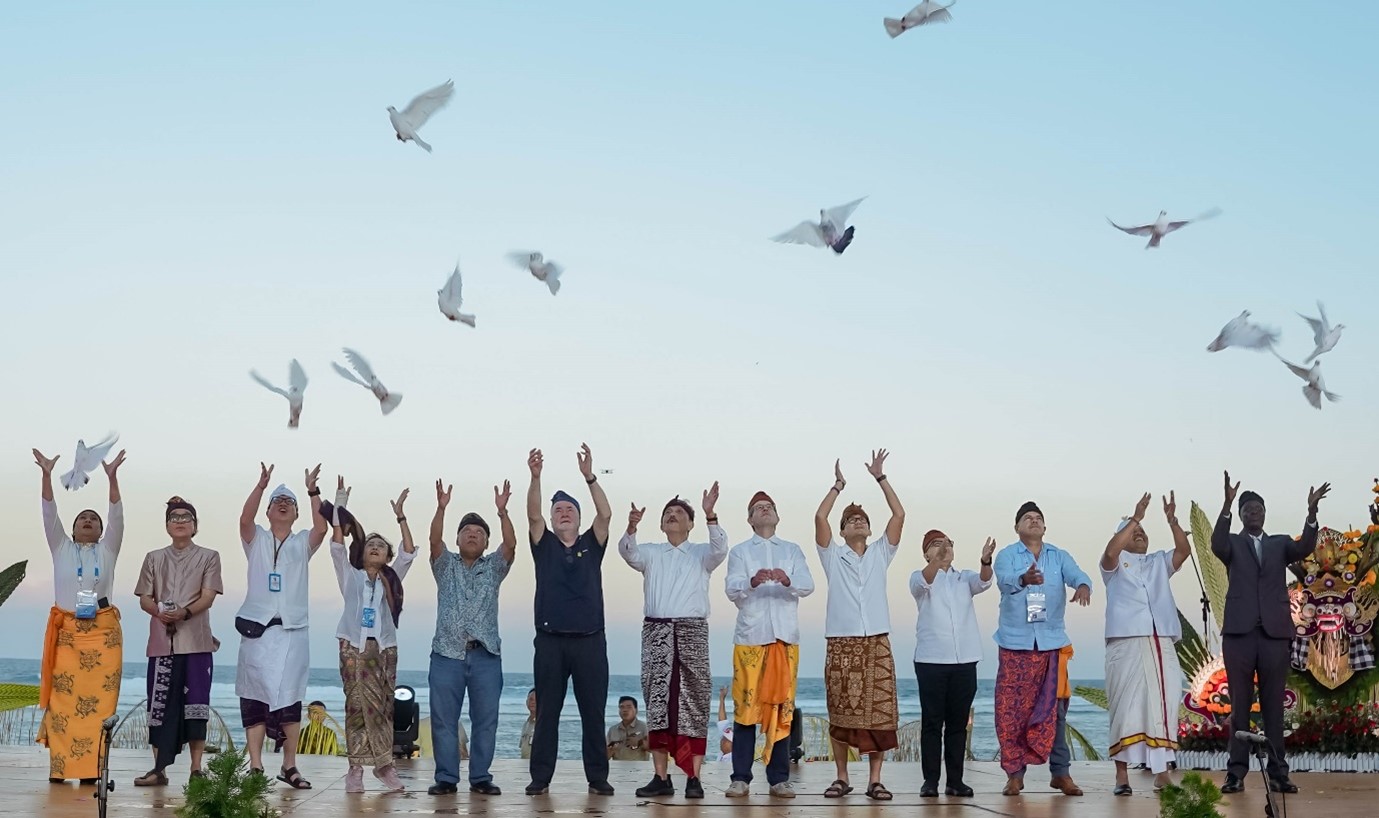10th World Water Forum Highlights
The 10th World Water Forum, held from May 18th to 25th, 2024, in Bali, Indonesia, provided a unique opportunity for the water community and key decision-makers to collaborate and bring innovative answers to global water challenges. The Forum allowed stakeholders to voice their political, thematic, and regional perspectives to turn water solutions into action.
The 10th World Water Forum in numbers:
- A global audience of 20,000+ registered participants
- 75,000+ visitors from 160 countries around the world
- 6 heads of state and 135 ministerial delegates, including 51 ministers and 34 international organization representatives
- 216 parliamentarian representatives from 44 countries
- 300 local and regional governments and basins’ representatives
- Over 280 sessions and more than 100 activities in the Expo and Fair booths
- 254 Expo and Fair Booths, including 19 Country Pavilion
- More than 4,000 youth participants
- 1,000 journalists from 120 media producing 2,000 news during the week
- A Compendium including 113 water and sanitation projects, valued at 9.4 billion US$
Every three years, this international event brings together a diverse range of stakeholders, including international organizations, governments, academia, local authorities, civil societies, and corporations. This inclusivity fosters a rich exchange of ideas, proposals, and commitments, all aimed at advancing the global water agenda.
As co-hosts of the 10th World Water Forum, the government of Indonesia and the World Water Council played a crucial role in increasing the visibility of relevant water issues at various levels, including local, national, regional, and international, during the entire three-year preparatory period.
A success for hydro-diplomacy: Political commitments to water at various levels
Leaders’ meeting as the highest commitment to water
The President of the Republic of Indonesia, Joko Widodo (Jokowi), and the president of the World Water Council co-chaired the 10th World Water Forum leaders’ meeting, which was attended by six heads of state. This meeting was an opportunity to demonstrate the Forum’s high commitment to solving water-related issues.
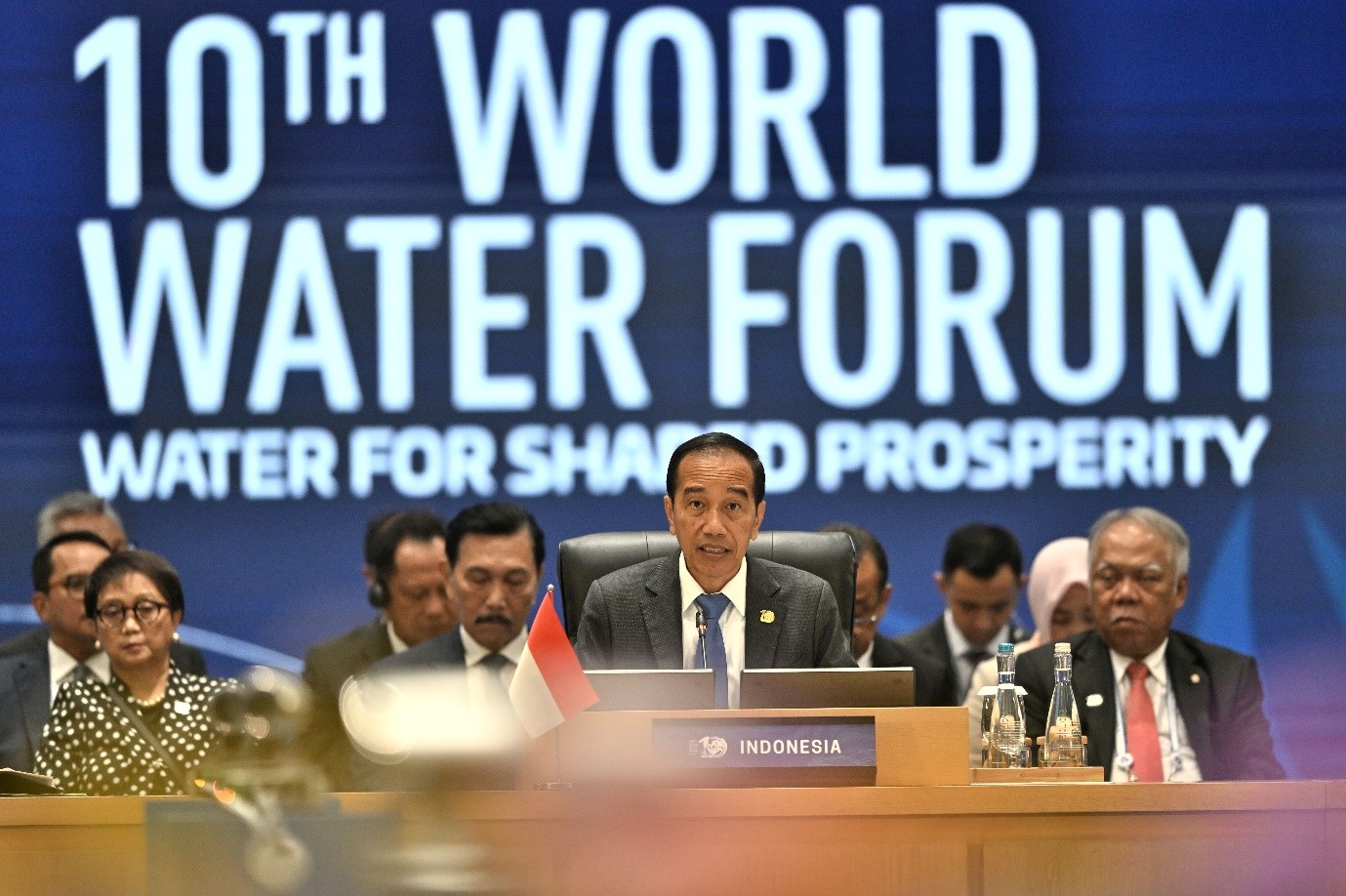
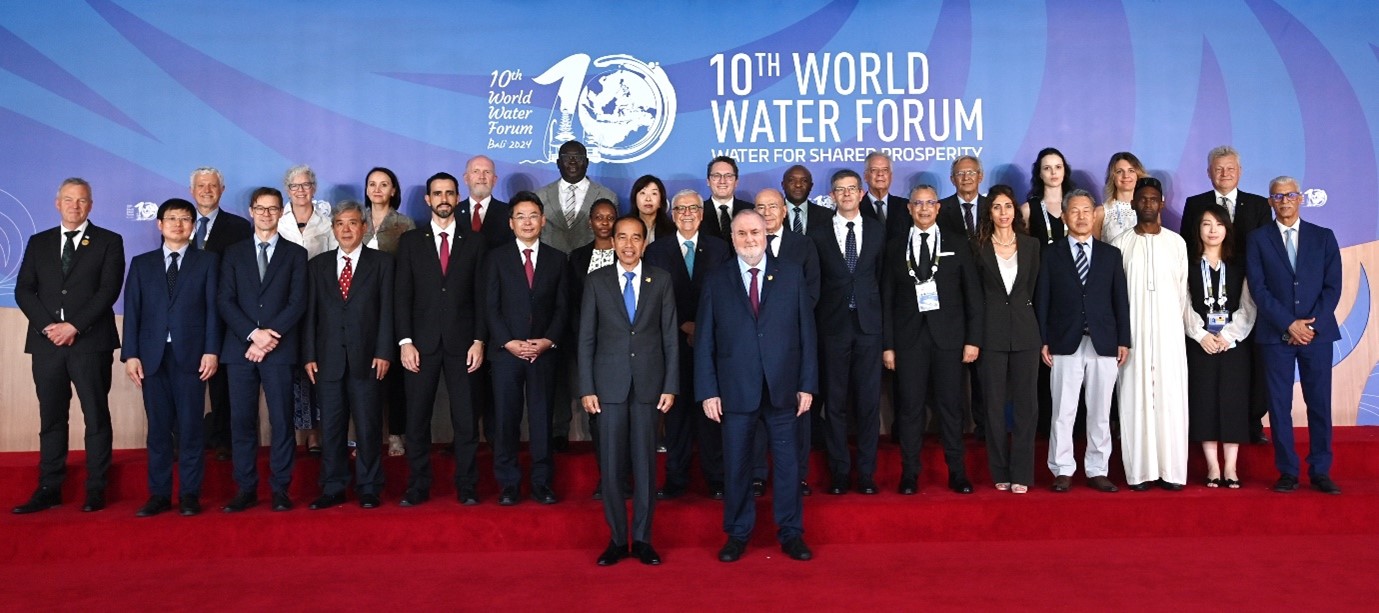
President Widodo urged the participants to accelerate global collaboration in managing water resources. Water was described as the “next oil”, as it has become an important factor in maintaining economic sustainability and global ecology. Five goals were discussed, as follows: water as a fundamental right, water resilience, water management funding, water for accelerating the SDGs, and creating synergies between the water agenda and global efforts. In addition, President Fauchon, called for action on seven main commitments: to promote water security policies worldwide at all levels of responsibility, to advocate that water sobriety needs the modification of our behavior, to scale up nature-based solutions, to strengthen the right to water in national legislation, to create a “Finance for Water” coalition, to prioritize water in climate funds allocations, and to encourage true hydro-diplomacy with a governance system based on multilateral cooperation.
A Ministerial Declaration leading to concrete action
One of the Forum's major achievements was the adoption of the Ministerial Declaration by over one hundred governments. This declaration represents an urgent call and a strong political commitment from Ministries on several issues, such as water security or transboundary cooperation development. It puts forward concrete initiatives, such as the establishment of a Center of Excellence on Water or the creation of a World Lake Day. The Compendium accompanying the Declaration details specific actions through 113 projects, including the creation of a Global Water Fund to renovate infrastructure, and modernizing water distribution networks in Latin America.
For further information, please refer to:
The Ministerial Declaration on “Water For Shared Prosperity”
The Compendium
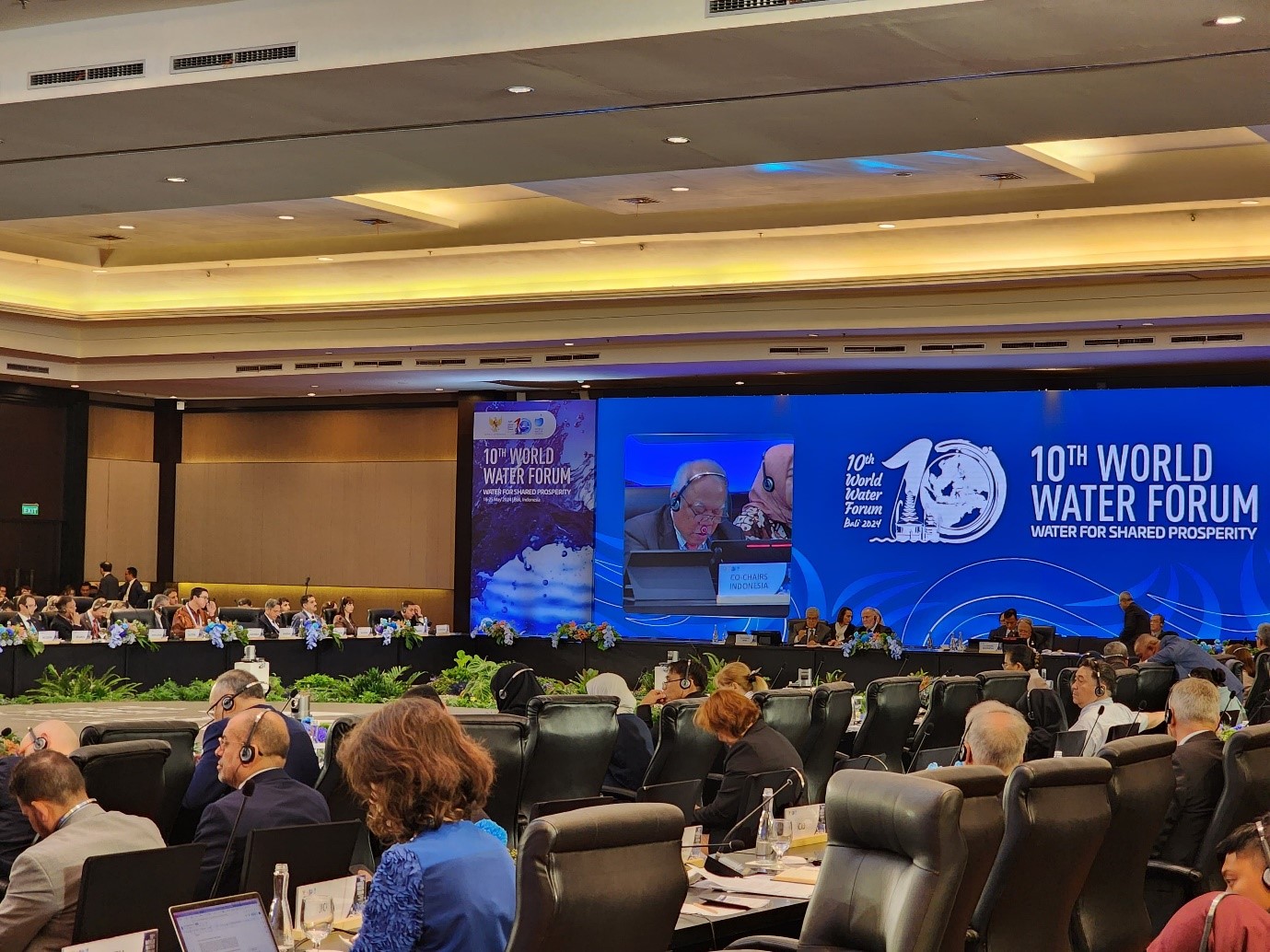
Parliamentary dialogues for innovative and sustainable water management
During the Forum, 216 parliamentarians from 43 countries reaffirmed the importance of mobilizing action on water for global security and prosperity. They also discussed the legislation needed to support water initiatives. The Parliamentarian segment concluded with the Nusa Dua communiqué, a document summarizing key points and recommendations, pledging to promote laws that support sustainable water management and to allocate sufficient budgets for implementing the projects identified at the Forum.
For further information, please refer to:
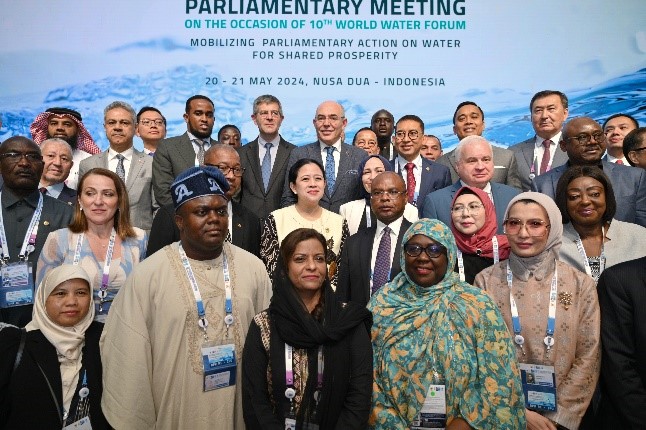
Fostering local and regional initiatives
Serving as frontline implementers of transformative measures, delegates emphasized the crucial role of local and regional governments in driving this transformative global agenda forward. Three hundred delegates from all around the world attended the meeting, including 160 local and regional elected officials. The delegates emphasized the need for inclusive governance and community involvement in the decision-making process, stronger multi-level governance and policy engagement across all government levels, as well as innovative mechanisms to mobilize funding for inclusive water infrastructure. They also underscored the urgency of enacting legislative frameworks for safe drinking water and sanitation and the crucial role of diverse voices in shaping water policies. The segment was marked by adopting a Joint Declaration that guided discussions throughout the day.
To find out more:
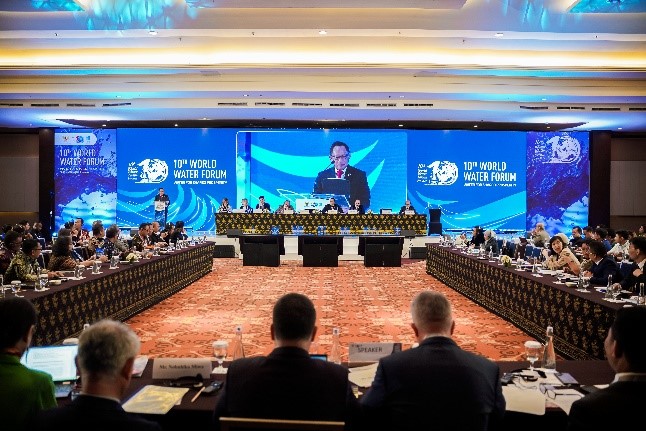
Integrated Water Management at basin level
Over 300 delegates, including 8 ministers and 11 basin organizations, joined the Basin Day. The discussions addressed basin governance, planning, financing, transboundary cooperation, water information systems, and better integration of ecological security through a basin-level approach. Concrete initiatives such as the Bali Basin Champion Agenda, and the Twin Basin initiative, an international program for experience sharing and capacity building between peers working on water management at the basin level, were also launched.
For further information:
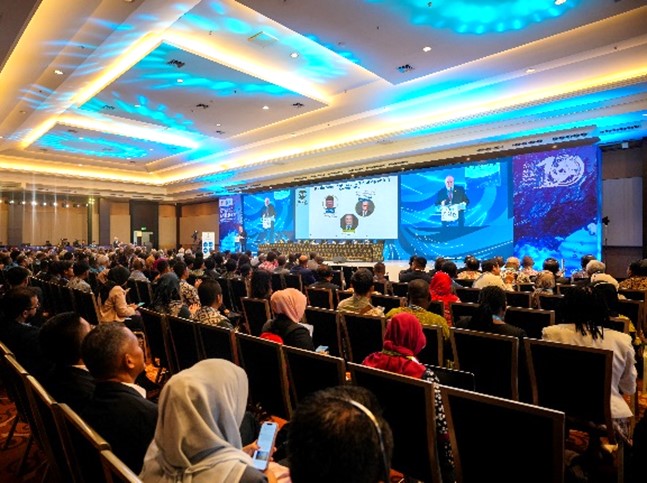
Bridging different realities through regional dialogues
Regional processes and the resulting dialogues, prepared by more than 80 regional working group members, were at the heart of the Forum. These discussions helped create a bridge between different water realities around the world.
Participants addressed challenges specific to the following regions: Asia and the Pacific, the Mediterranean, the Americas, and Africa. They also shared solutions adapted to their local contexts. With context-specific meetings and cross-fertilization dialogues, regions exchanged local knowledge and wisdom as well as tailored solutions. Regional stakeholders also highlighted best practices in local and regional contexts, resulting in concrete recommendations integrated into the overarching Forum framework.
The Asia Pacific region gathered priorities from five sub-regions and highlighted smart water management, sustainable agricultural water management, sanitation improvement, and disaster reduction and resilience based on five principles (building adaptive capacity, embracing circular economy, improving governance, and fostering innovation). Accelerating the deployment of Early Warning for All (EW4ALL) and mainstreaming robust water accounting systems at all levels in Southeast Asia were highlighted as regional actions.
The Americas region and its four sub-regions (North, South, Central, and Caribbean) emphasized the need to enhance resilience to climate change and discussed integrated management of surface and groundwater, as well as efficient water use in urban and agricultural sectors. The creation of the Latin American Water Council emerged as one of the most tangible actions.
In parallel, the Mediterranean region underscored the urgency of addressing water pressure exacerbated by climate change. Some measures for doing so are advocating for strategies and an Early Warning System and aligning multinational cooperation by developing digital and solidarity-based financial models to optimize water management.
Africa underlined the necessity to improve water and sanitation services and water quality while addressing water scarcity issues with local solutions. The African region also highlighted challenges such as capacity-building enhancement, data sharing, cross-border cooperation, innovative financing and investment, gender equality, and social inclusion. These require stronger alignment with the Africa Water Vision 2025 to attain the African Union Agenda 2063.
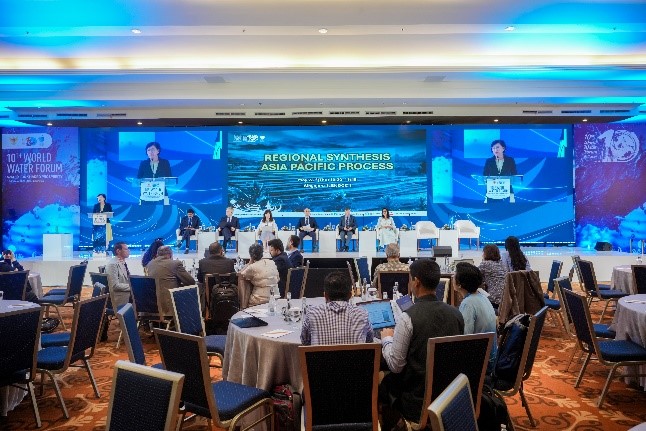
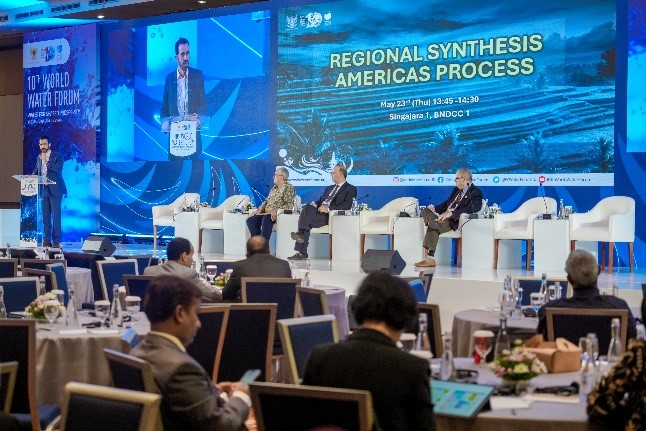
Empowering global water solutions: Thematic insights
A rich, innovative, and inclusive thematic agenda
Overall, more than 300 members of the thematic working groups developed and prepared 125 thematic sessions. Indeed, the Forum offered in-depth discussions on 30 topics structured under 6 sub-themes, which addressed issues such as water security and prosperity, water for humans and nature, disaster risk reduction and management, governance, cooperation, and hydro-diplomacy, sustainable financing, and knowledge and innovation.
Discussions involved various actors from different sectors, including water experts as well as non-water community members. They provided insightful analytical perspectives and technical solutions to tackle the pressing water challenges millions of people face.
Notable initiatives under Water Security included the launch of a Grey-Green Infrastructure Compact and a Global Multi-Sector Hub to reduce consumptive water use and enable water savings.
The launch of a new strategy for the Water Protection Partnership for Africa and partnership enhancement for the Freshwater Challenges committed towards the One Water Summit were also noticeable projects under Water for Humans and Nature.
Under the theme of Disaster Risk Reduction and Management, a pledge was made to equip and support the Online Synthesis System for Sustainability and Resilience. A commitment to strengthen the International Flood Initiative and Asian Water Cycle Initiative also emerged.
The working group dedicated to Governance, Cooperation, and Hydro-diplomacy encompassed transversal issues such as innovation and finance. The commitment was made to pursue the efforts to integrate water as a political issue during the preparation of the UN-Water Conference 2026.
Establishing the Global Water Fund framework and a new task force for collective action on financing water security and basin resilience were highlighted as concrete results of Sustainable Water Finance.
Various new steps of the Global Education Water Network were proposed in parallel with the establishment of a “Finance for Water” coalition of experts to develop a smart water management community of practice. In addition, the launch of “The Bali Coalition to strengthen Training in the Water Sector” was a milestone under this sub-theme.
The outcomes of the thematic process should eventually influence stakeholders toward more concrete and bold solutions.
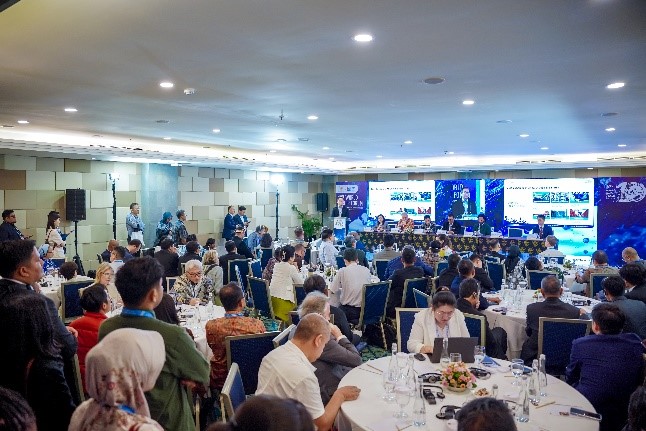
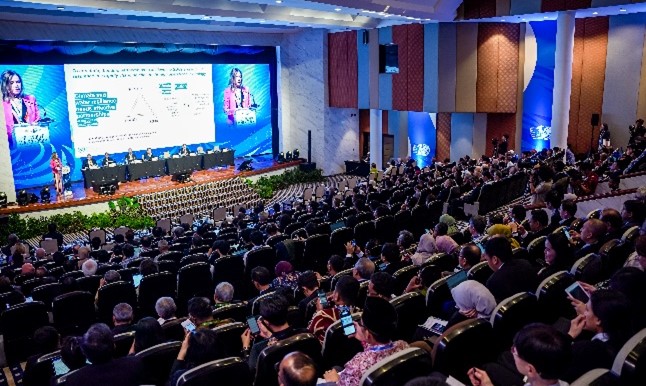
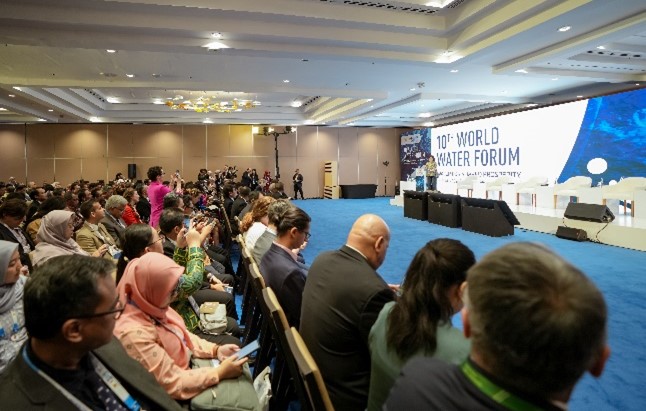
An important and active participation from civil society
More than one-third of the thematic working groups’ members came from civil society. Representatives from this sector played a key role in leading many sessions. Their participation ensured that the voices of local communities and vulnerable populations were heard. Throughout all Forum processes, civil society participated actively in providing concrete solutions and commitments that contributed to the inclusiveness of the Forum.
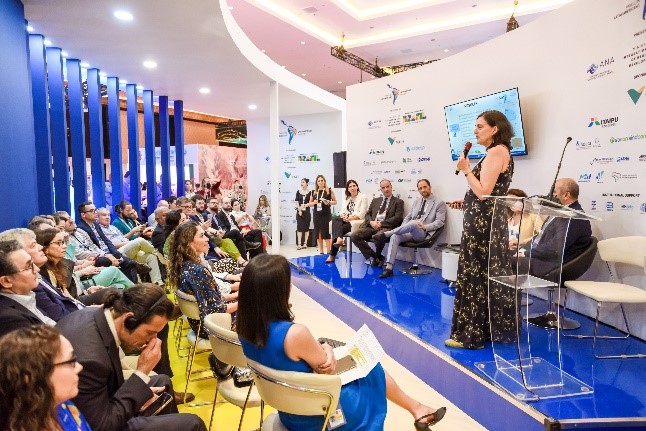
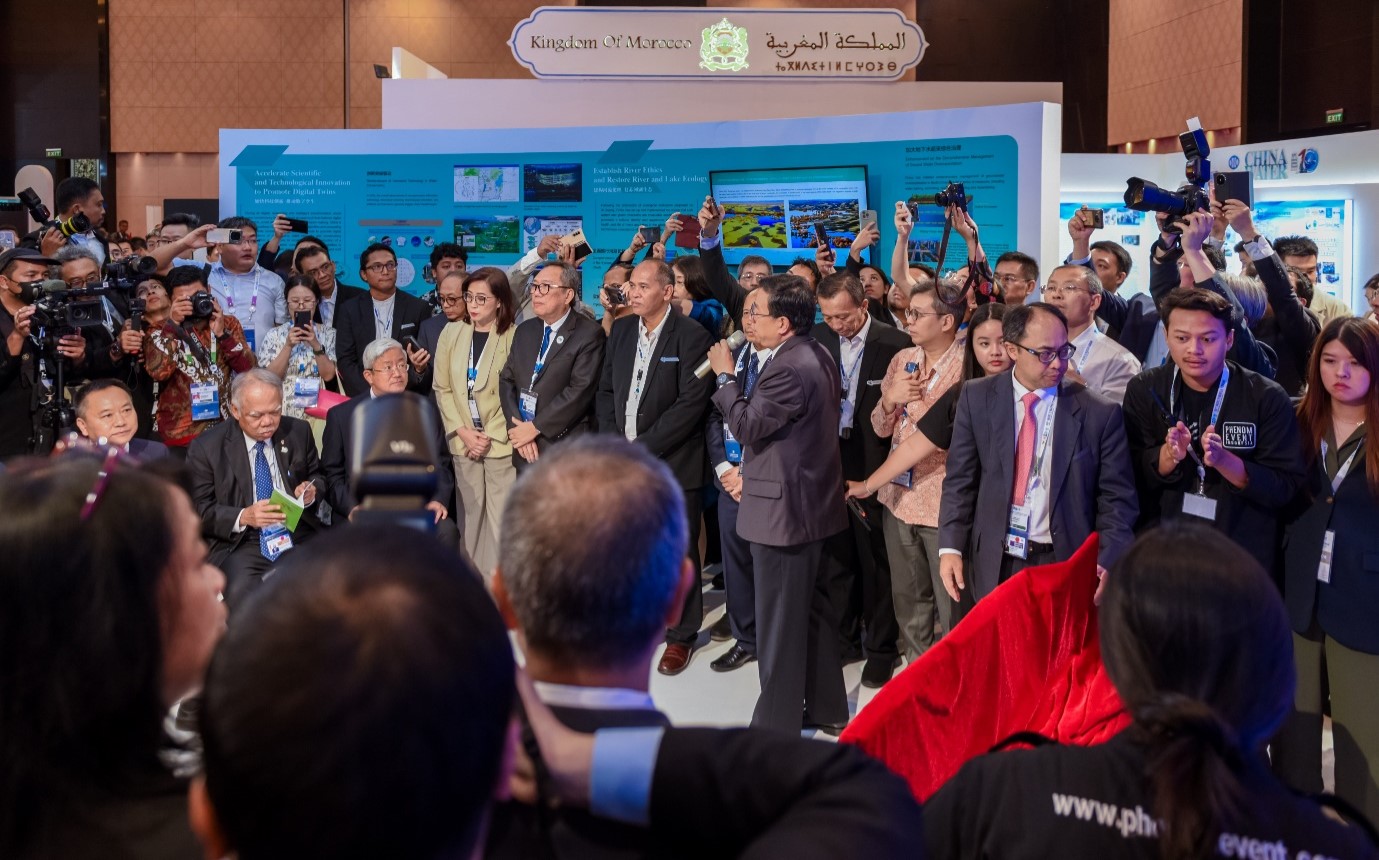
The future of water: Youth-led ideas and initiatives
Strong youth engagement and participation was one of the key elements of the 10th World Water Forum. Indeed, more than 4,000 young people participated actively in the thematic, regional, and political processes. The Bali Youth Plan, developed by its 26 working group members, introduced the "Bali Youth Targets," to be implemented across sectors. These targets aim to improve work and education opportunities, ensure youth inclusion in governance, and support youth leadership and entrepreneurship within the water sector.
The Forum also featured an exclusive youth space where young people could meet, network, and share ideas. This place attracted over 2,500 participants, fostering discussions on Forum themes from an intergenerational perspective. The Bali Youth Prize, a dedicated youth award organized by the Republic of Indonesia, also contributed to maintaining youth engagement in future forums. The Bali Youth Plan is set to be a stepping stone towards upcoming gatherings of global water communities.
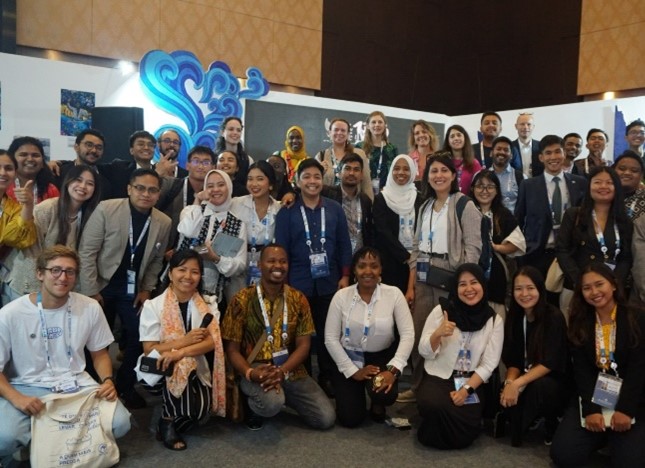
To conclude
The 10th World Water Forum in Bali confirmed the crucial importance of international cooperation in resolving water-related challenges. The commitments made by different stakeholders at all levels demonstrated a collective will to contribute to change. However, the work does not and cannot stop there. Transforming commitments and solutions into concrete actions is essential to ensure sustainable management of water resources. The successes shared at this Forum are expected to be closely monitored to ensure they are effectively implemented.
Let us congratulate all stakeholders and participants for their engagement with the water cause. We reiterate the imperative need to follow up on our promises and move from discussion to action. Together, let us continue advocating for water and turn our words into reality.
